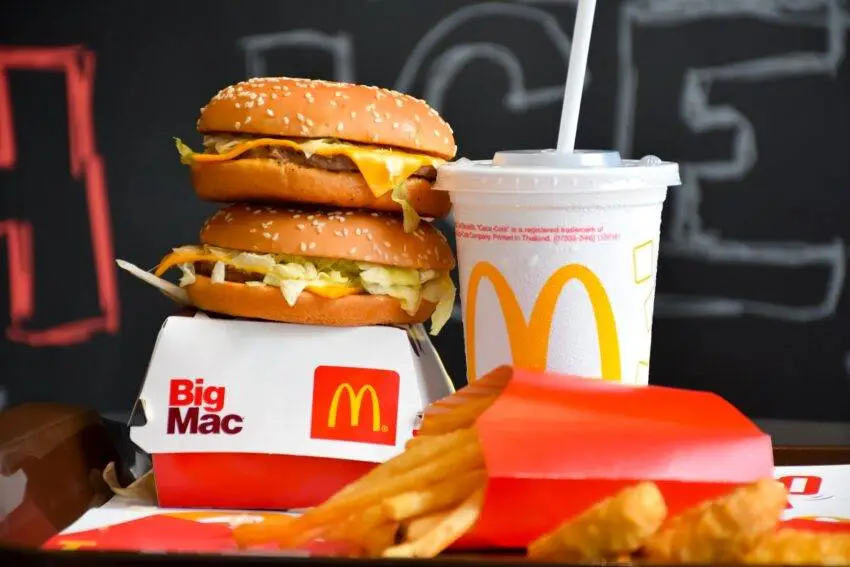The European Court of Justice has made a pivotal ruling against McDonald’s, preventing them from using the Big Mac trademark for chicken burgers. This decision is a significant win for the Irish fast-food chain, Supermac’s.
Supermac’s managing director, Pat McDonagh, hailed the outcome as a victory for small businesses worldwide. The ruling draws attention to trademark practices and their implications for fair competition.
The Verdict
The European Court of Justice (ECJ) has ruled against the American restaurant giant, stopping it from using the Big Mac brand for chicken burgers. This decision is a result of Supermac’s challenge that McDonald’s had not genuinely used the Big Mac name. It’s a noteworthy win for Supermac’s and smaller businesses around the globe.
Pat McDonagh, managing director of Supermac’s, described the decision as a ‘significant victory for small businesses’ all over the world. He added, ‘We knew when we took on this battle that it was a David versus Goliath scenario.’ The ECJ’s ruling emphasises the misuse of trademarks to suppress competition.
Background of the Dispute
McDonald’s had registered the Big Mac trademark for meat and chicken dishes across the European Union in 1996. Supermac’s challenged this in 2017, claiming McDonald’s was not using the trademark genuinely. This led to partial revocation of the trademark in 2019 by the EU Intellectual Property Office.
The partial revocation allowed Supermac’s to use the Big Mac name. However, McDonald’s was still permitted to use the name for its meat and chicken sandwiches. Not satisfied, Supermac’s continued to pursue the case, eventually leading to this recent ECJ ruling.
The Court’s Decision
The ECJ altered the previous ruling, indicating that McDonald’s failed to show ‘genuine use’ of the Big Mac name for its products. This decision means McDonald’s cannot use the Big Mac name for chicken burgers anymore.
The court’s decision highlighted McDonald’s inability to demonstrate genuine use of the Big Mac trademark when opening restaurants and drive-through outlets. This is a significant blow to the company.
McDonald’s still has the option to appeal this ruling to the Court of Justice of the European Union, the highest court in Europe. The outcome of this decision has yet to unfold.
Reaction from Supermac’s
Pat McDonagh criticised McDonald’s for years of ‘trademark bullying.’ He pointed out that McDonald’s had trademarked SnackBox, a popular Supermac’s item, without offering it themselves.
McDonagh founded Supermac’s in 1978 after being denied permission to build a pool hall. The chain has grown to 100 restaurants across Ireland, offering a burger similar to the Big Mac, called the Mighty Mac.
McDonagh’s dissatisfaction with McDonald’s practices spurred the initial challenge. Despite the odds, Supermac’s emerged victorious, marking a milestone for smaller enterprises challenging larger corporations.
McDonald’s Response
A McDonald’s spokesperson responded to the ruling, saying, ‘The decision by the EU General Court does not affect our right to use the ‘BIG MAC’ trademark. Our iconic Big Mac is loved by customers all across Europe, and we’re excited to continue to proudly serve local communities, as we have done for decades.’
The company emphasised that the ruling does not undermine the popularity or the presence of the Big Mac in Europe. McDonald’s intends to continue serving its signature burger.
Significance of the Ruling
The ruling is a landmark victory for small businesses taking a stand against global corporations. It sets a legal precedent for future trademark disputes, encouraging fair competition.
This decision might inspire other small businesses to challenge trademark practices of larger companies, fostering a more balanced competitive environment.
Future Implications
The option for McDonald’s to appeal remains. However, should the ruling be upheld, it could redefine trademark usage and protection in the EU.
Small businesses might feel more empowered to dispute unjust trademark claims by larger entities, contributing to a fairer marketplace.
Conclusion
The conclusion of this trademark battle between Supermac’s and McDonald’s is a historic moment in the legal world. It signifies a shift in the balance of power towards smaller enterprises.
This decision could pave the way for more equitable competition, ensuring that trademarks are used genuinely and not as a means of suppressing smaller competitors.
The conclusion of this trademark battle between Supermac’s and McDonald’s is a historic moment in the legal world. It signifies a shift in the balance of power towards smaller enterprises.
This decision could pave the way for more equitable competition, ensuring that trademarks are used genuinely and not as a means of suppressing smaller competitors.

